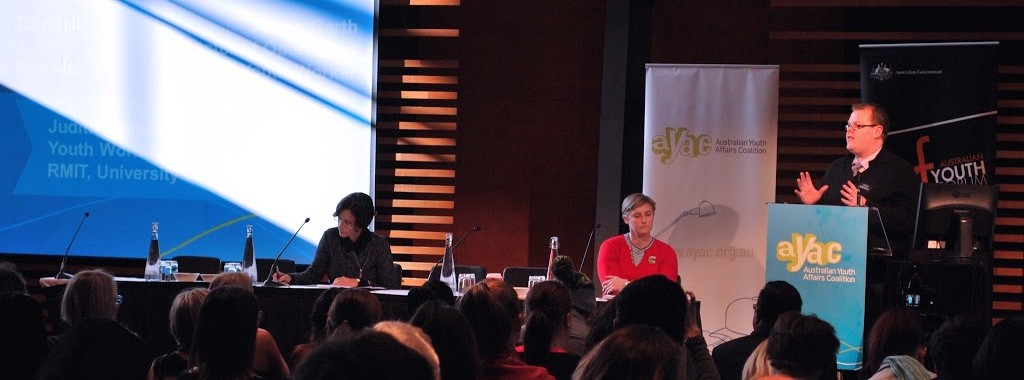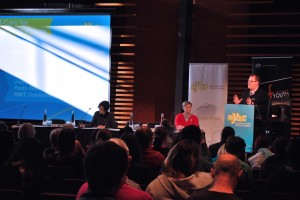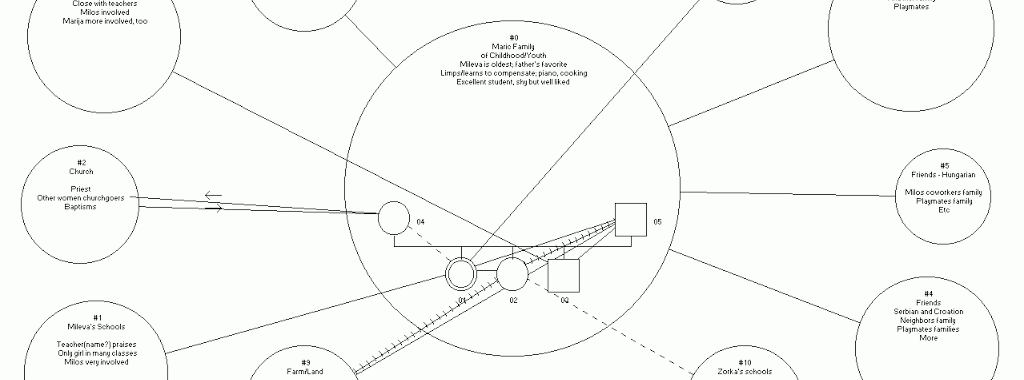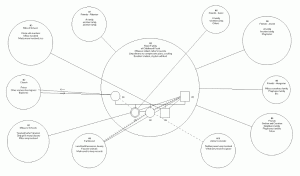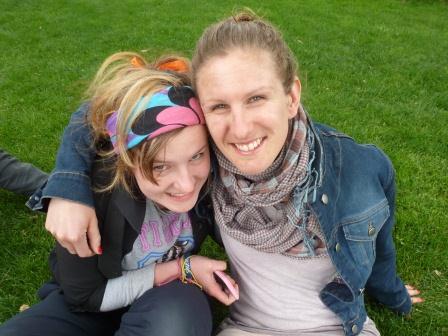Author Archive: Aaron Garth
A couple of weeks ago our Executive Director had the privilege of speaking with Wolfgang Vachon of C2Y Podcast. In this cast we spent much of our time talking about the need for youth work to enter the online realm as it is where many of our young people can be found. This truly international discussion (Wolfgang is from Toronto, Canada and we are based in Melbourne, Australia) is a prime example of the opportunities the internet has for doing youth work and providing training opportunities to the youth sector.
Have a listen to the C2Y Podcast and share it with your friends in the sector.
Good self care in youth work
Self care is an ethical requirement
I have heard, over the past year or so, more excuses as to why youth workers can’t commit to self care than I care to recall. These excuses ranged from a lack of time and money to not knowing where to start and lack of support from management. Many of these excuses are baseless and push focus away from the workers who should have been more involved in their own care. However there are a number which have a base in dodgy policy and even worse practice.
First amongst my pet peeves is the youth worker who believes that they can trod through their work without supervision, professional development and support and still provide exceptional support to their clients. YOU CAN’T! It is one thing that it is not given to you as a youth worker, it is completely incompetent to not actively seek it out in your own time on your own dime. It is an ethical requirement that youth workers perform at their best, Which means youth workers need to have training and support to deal with the load that we carry. It is an ethical requirement for ultimate youth workers.
The second and even more repulsive is when managers put ticking boxes above the health and wellbeing of their staff. Over the years I have worked in a number of different organisations and have seen great managers and woeful ones. The ones who put the funding agreements above their staff have revolving doors which spit those staff out when they are all used up. They rarely send staff to professional development that is worth going to and don’t know how to supervise their staff apart from the administrative graces of checking their case load is up to scratch. These managers vehemently defend the ethical need to reach targets and quash those who speak of self care being just as ethically required.
Good self care is an ethical requirement not something that can be forgotten. Exceptional youth workers need great support and training. There is no excuse for lacking self care.
Leave us a comment below or post a comment on facebook and twitter.
If you haven’t yet, sign up for our newsletter to find out all the goings on at Ultimate Youth Worker. (Sign up here)
Developing leaders in youth work: Its crucial to mentor.
Many years ago after finishing my degree I asked one of my professors for some guidence with an piece of work I was doing. Without hesitation she said that she would be delighted as we need to develop more leaders in the youth sector. This short statement has meant a lot to me over the years but I never fully understood its importance until this year.
As a teacher of youth work students I can see the passion and future potential colliding every day I teach. The students of today will be the managers in a decade. The work we do now will pay dividends in a generation. Sadly though, it seems that there is little happening post the education of youth workers.
We who have been in the sector for a while need to mentor those coming through. Whether you are a coalface worker, a Manager or a CEO you need to support the next generation coming through. If we truly want to see audacious youth workers in an excellent sector then we need to impart our practice wisdom to those who are going to be the leaders of the future. Every organisation which employs youth workers should mentor them. Every professional association should develop a register of potential mentors. Most of all it should become part of our core responsibilities to the sector.
If one youth worker supports one other youth worker per year through their career then we will see a revolution. Imagine mentoring 30-50 other youth workers who in turn support another 30-50. We would have a highly supported and trained workforce for generations.
Our challenge to you:
If you have five years or more in the sector, find one person you could potentially mentor for the next 12 months.
Let us know how you go! Leave us a comment below or post a comment on facebook and twitter.
If you haven’t yet, sign up for our newsletter to find out all the goings on at Ultimate Youth Worker. (Sign up here)
We need to do better: Critically reflective practice and supervision in youth work
This evening I sat in on a class preparing students for a masters degree placement in the human services. The topic for the class was supervision and particularly reflective supervision. As a company that believes we need a better class of reflective practice and supervision I was really keen to see what they would tell students. Sadly it was a waste of time.
The students were shown an article about a critical supervision model and were told to role play a scenario using the model. Then the class ended! This was the only class these students ever had about critically reflecting in supervision. I was shocked!!! The students had a model for critical reflective practice, however it was clear that very few of their placement supervisors really did critically reflective supervision.
We need to spend more time on the idea of critical reflection and supervision especially in higher education. What more can we expect when our students have a two hour class on the subject. We believe that for our sector to really become critically reflective it needs to be taught from the first class in our qualifications. For supervisors to be able to supervise well they need better training than a two hour class.
If you are an educator, a supervisor or a coalface worker we need to do better at critically reflective practice and supervision. Join with us to make this a part of your practice.
Apply for supervision today
R U ok? a daily question for great youth workers.
Tomorrow is R U OK day here in Australia. R U OK day is an initiative to help the general public support their friends, families and colleagues speak about mental health. The basic idea is to ask people if they are ok and to let them know you are there to help if they need it. As a youth worker this is a daily task with our clients… but it is just as important to do this with our colleagues.
The latest statistics are showing us that an alarming number of youth workers are leaving the sector after little more than eighteen months in the field. We are seeing youth worker burnout coexisting with depression, anxiety and many other mental and physical health issues. So why aren’t we asking if our colleagues are ok? Wouldn’t it make sense for managers and colleagues to look out for each other? For organisations to require their staff to look out for each other? For staff to be allowed to deal with their stress?
On this R U OK day why not ask your colleagues if they are ok? The answer may surprise you.
Managers just need to get out of the way of great youth work.
In the height of this neoliberalist push towards managerialism we are finding that more managers seem to be looking over our shoulders. They tell us exactly how to do our jobs and what theoretical frameworks we can use. They meddle in areas that many of them have no training in.
Theodore Roosevelt once said “The best executive is the one who has sense enough to pick good men to do what he wants done, and self-restraint enough to keep from meddling with them while they do it.” This is something that managers in the human service and specifically those who manage youth workers need to understand. If you hired good people then you don’t need to watch their every move.
Managers set your staff on their tasks require regular reporting and then get out of the way.
We need more youth worker show offs!!!
I have had a number of discussions lately where people told me they know nothing about youth work. The sad part was that they were professionals who worked with youth workers from time to time. I have also had these conversations throughout the years with member of the general public. We are just not as well marketed in the general public as we think we are.
We need some more people to spruik what we do as youth workers. Not just the occasional person who we all pick on from within our ranks. We need professional associations, practice groups and large organisations to get on board and change the public perception of youth work. We as individual youth workers need to let people what we do.
We need to become better at self promotion.
Why youth workers need to take a holiday.
I was recently talking to a youth worker who hadn’t had a holiday in over five years. Aside from a couple of long weekends and the forced week off between Christmas and New Years, he hadn’t had time away from work. When I probed more it turned out the he had marriage issues, spent next to no time with his children and was off the charts on stress tests; basically a self care nightmare. I asked why he was pushing himself and he said that he needed the money and that if he wasn’t there his clients would be in trouble.
If I had a dollar for every time I heard a story like this I would have a decent car brought and paid for. Recently, at the Australian Youth Affairs Conference, I was on a panel addressing self care. One of the questions I was asked was the reasons I hear for a lack of self care, really all I hear are excuses.
The main excuse I hear is that our clients need us. The fact that 100% of them were doing life fine before we got involved in their lives never enters the picture. It is like, if we weren’t there all our young people would die or end up in prison. So we run ourselves into the ground and give them sub standard service along the way.
I spoke to the youth workers manager later that afternoon, and after giving them a serve about not showing care for their staff I told her that she needed to send this guy on a forced vacation in the next month. The Director of the service did not know that there were staff in their service that hadn’t taken holidays in years. That service now has a policy that staff must take holidays every year.
You have to take holidays. Your family, career and your clients depend on you looking after yourself.
You can also leave us a comment below or post a comment on facebook and twitter.
If you haven’t yet, sign up for our newsletter to find out all the goings on at Ultimate Youth Worker. (Sign up here)
Great tools for youth workers: Use an Ecomap.
One of the most used tools I have in my kit is an Ecomap. An Ecomap is a graphical representation of the systems at work in a person or groups life. The graphic places the individual or group in the centre and all the other groups or individuals which have influence over them. This great tool has been in use since 1975 when it was invented by Hartman.
The basic idea is that you draw a circle and put the client in it. You then draw circles around the outside which represent the groups and people involved with the client. The reason this is one of my favourite tools is that it shows the people and groups which have influence, whether good or bad, over a persons life. This can then be used to discuss positive influence and the need to deal with negatives.
give it a go.
P.S. If you think the example above looks pretty boring… me too. Our good friends over at Canva.com have come up with a great set of templates to tart up you ecomap and make it look a million bucks. check out www.canva.com to see what they can help you create.
Why we need youth mentoring programs.
Recently in my state many of the youth mentoring programs have had to come to terms with losing their funding. This has led to a number of programs closing up shop and leaving many young people in the lurch. The big issue is that these programs provide much more benefit than they cost.
The sad fact is youth workers can’t do everything that our young people need. We need others to help! The best way I know of is to have a mentoring program. In my career I have been involved in a number of mentoring programs and they were all worth their weight in gold.
As youth workers we need to keep youth mentoring programs going… even if we don’t have the funds. We must provide opportunities to develop our young people and one of the best opportunities is to build their network. To have older people guide them through the storms and stress. To have people with similar interests build their knowledge.
We need youth mentoring now more than ever!




